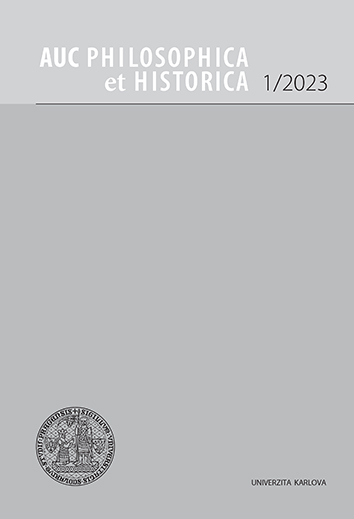AUC Philosophica et Historica (Acta Universitatis Carolinae Philosophica et Historica) is a multidisciplinary academic journal focused on the humanities with more than 50 years of tradition.
The journal is indexed in CEEOL, DOAJ, and EBSCO.
AUC PHILOSOPHICA ET HISTORICA, Vol 1997 No 4 (2000), 135–156
Reflexe kriminality ve veřejném mínění
[Attitudes to Crime in Public Opinion]
Jiří Buriánek
DOI: https://doi.org/10.14712/24647055.2018.54
published online: 12. 01. 2018
abstract
The author considers his own concept of the „patient society“ in relation to recent developments in the CR and the reaction of public opinion to the growing level of relative social deprivation. While last year there was a 5% rise in crime, the level of fear of crime remained unchanged. The problem of crime continues to top the ladder of perceived contemporary proplems, but the weight attached to economic factors in the context of economic recession is increasing. The media have a demonstrable effect on attitudes to crime. Faith in institutions continues to be among the stabilising elements, and there have been no striking changes in the area of punitive or xenophobic attitudes and reactions. Public satisfaction couceming the work of the police has even increased slightly. Problems in the area of living standards are indirectly expressed in attitudes. There has been more significant social differentiation in attitudes to crime and trust in institutions, while faith and willingness to co-operate with the police, for example, correlates positively with social status. Research on victimisation confirms its growth among the highest social strata, and also a slight increase among the lowest strata (the average for the whole population is roughly 30 being victims of crime over the year). The most interesting finding in the field of analysis of attitudes is clearly differences in level of fear related to place of residence. While fear of crime is naturally higher in the large towns, the patter is different in Prague. It appears that the inhabitants of Prague have now adapted to their clearly higher level of crime and that a kind of more general trend, the effect of „risk normalisation is at work here. The respondents from the survey of the Czech population cited (1998. N=1719), expressed the greatest fear of economic (property) crime, and in doing so were reacting relatively realistically. Nevertheless, the author of the article believes that the state of public opinion ought not to be regarded as the main criterion for the evaluation of practical policies. The deepening social differentiation of society in relation to the phenomenon of crime is beginning to be reflected in the attitudes of youth as well, and is making it essential to consider the question of more comprehesive sociological analysis and explanation. It also confirms the plausibility of Merlon’s concept of anomie, and one cannot therefore rule out the shidt of a previoush stabilized and patient Czech public to reactions of that might be described as resigned, „intimidated „stressed“, or even „wild“ (homo homini lupus).
